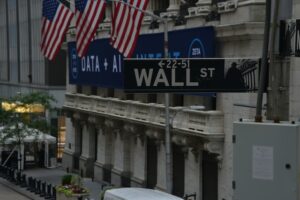Senegal Blocks TikTok: Unraveling the Widening Clampdown on Dissent
In a significant move that has caught the attention of the international community, Senegal has recently made headlines for its decision to block the popular social media platform TikTok. The move is seen as part of a widening clampdown on dissent and has raised concerns about internet freedom and digital rights in the West African nation.
TikTok, a platform known for its short-form videos and viral challenges, has become a global sensation, attracting millions of users worldwide, including a sizable user base in Senegal. As the platform gained popularity, it also became an essential tool for expression and activism among the youth in the country.
The Role of Social Media in Fostering Dissent
In recent years, social media platforms have played a crucial role in enabling citizens to voice their opinions, organize protests, and hold governments accountable. Senegal’s youth, like their counterparts in other parts of the world, have turned to TikTok and other social media platforms to express their frustrations and call for change.
Amidst growing political dissatisfaction, Senegal has witnessed protests and demonstrations calling for reforms and improved governance. These events, fueled by social media’s power to mobilize masses, have made the government increasingly wary of the potential impact of online dissent.
The Widening Clampdown on Dissent
Senegal’s decision to block TikTok is just one example of a broader clampdown on dissent in the country. In recent times, the government has been accused of using various measures to stifle opposition and silence critical voices. Online censorship, surveillance, and restrictive regulations have become more prevalent, sparking concerns among human rights organizations and activists.
The Growing Concerns Over Censorship
While the government cites reasons like national security and protecting citizens from harmful content as justifications for the TikTok ban, critics argue that such measures infringe on citizens’ fundamental right to freedom of expression and access to information. The blockage of a widely used platform like TikTok is seen by many as an attempt to control the narrative and limit the flow of information.
Impact on Internet Freedom and Digital Rights
Senegal’s actions have also raised questions about the state of internet freedom and digital rights in the country. Internet shutdowns, content filtering, and surveillance practices can have severe consequences for an open and democratic society. The ability of citizens to express themselves freely and access information without fear of reprisal is vital for a functioning democracy.
International Response and Advocacy
The Senegalese government’s measures have not gone unnoticed by the international community. Human rights organizations and activists have been voicing their concerns and advocating for the restoration of internet freedom and digital rights in the country. Calls for transparency and accountability in the government’s actions have also been growing.
Conclusion
Senegal’s decision to block TikTok is a significant development in the country’s ongoing struggle between dissent and government control. As social media continues to play a vital role in shaping public discourse, the actions taken by the government to suppress online expression raise serious concerns about internet freedom and digital rights. The international community must keep a watchful eye on the situation and lend its support to the cause of upholding fundamental freedoms in Senegal and beyond. Only through open dialogue and respect for democratic principles can a lasting and positive change be achieved.












